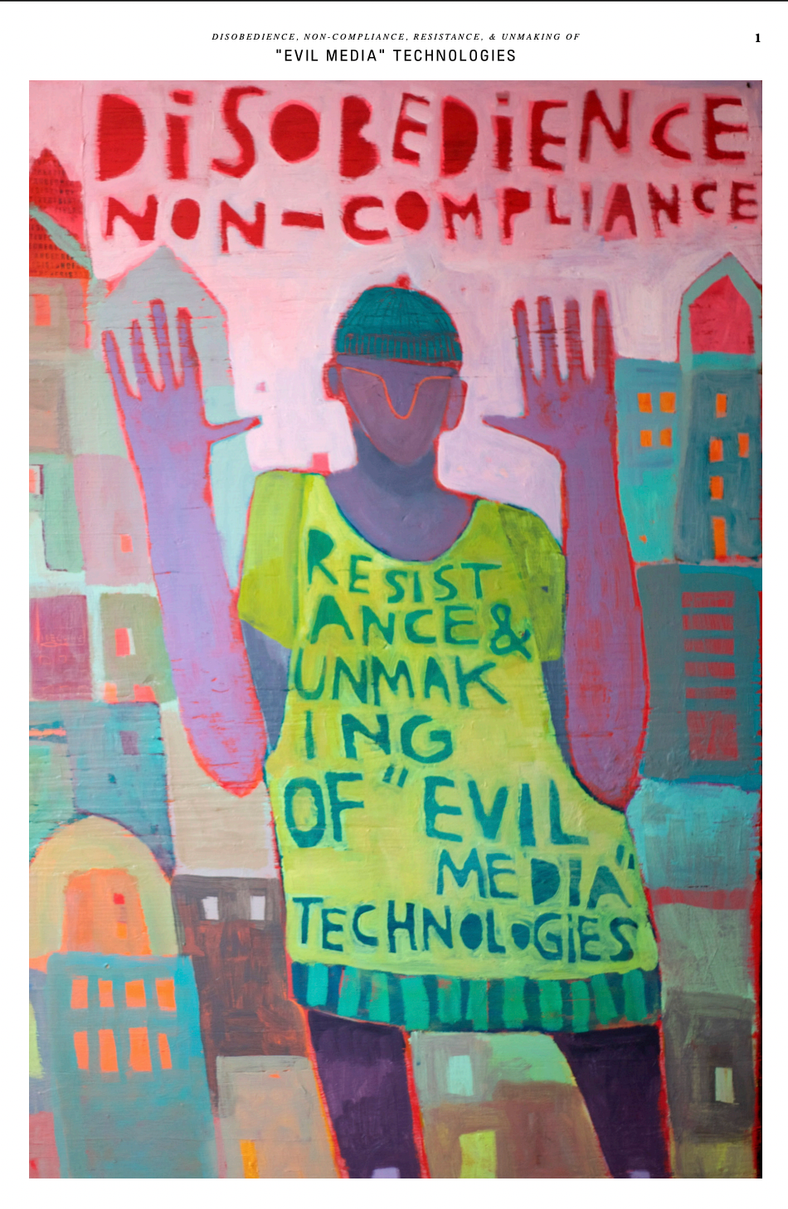Lina Rahm
Universitetslektor, bitr
Forskare
Om mig
About me
I'm Assistant Professor (biträdande lektor och docent) in the History of Media and Environment with specialization in Artificial Intelligence and Autonomous Systems, funded by the WASP-HS Wallenberg AI, Autonomous Systems and Software Program – Humanities and Society.
Projects
I have studied how automation and AI has contributed to educational governance. Currently, I am invested in the following project founded by WASP-HS:
Media and Environment: Al and Autonomous Systems in Data-Based Environmental Research
This research project that combines critical media studies, environmental humanities, history of technology, post structural policy analysis, feminist epistemology and science and technology studies in a large-scale analysis of what problems artificial intelligence (AI) is supposed to solve in relation to environmental and climate change. The focus of the project is the recent rapid development of artificial intelligence (AI) for environmental purposes that has generated a surge in scientific projects and publications that aim to apply AI to battle different environmental problems. The project is based on a view that the ways in which AI can contribute to new knowledge or solve a problem largely depend on how the problem itself is made meaningful. The approach is based on the theoretical assumption that problem representations are a way for different stakeholders to negotiate and present certain aspects as problematic, and thus also represent specific solutions.
AI Futures and Pasts: Educational and Ecotechnological Imaginaries
Education has always been a structural and political way to prepare citizens for the (technological) future. Right now, artificial intelligence (AI) is emerging as a key technology that will change the future radically in all areas of life. Education and knowledge about AI are seen as important to develop trust in these systems but also for democratic decision-making. Technological explicability (explanation and transparency) is also dependent on the general skillset and knowledge of the citizenry. As such, many educational stakeholders, at different levels, are considering how to best convey the necessary knowledge and skills, to the general population, in order to prepare them for a future where AI is ubiquitous. Education and new knowledge are often presented as a kind of universal solution to technical problems (closely connected to the concept of lifelong learning), which often escape problematization, and are only seen as a democratic solution. Therefore, I want to put notions of education and new knowledge under critical scrutiny. What kind of knowledge is seen as important? How should citizens acquire new knowledge? How is the inherently complex idea of an AI-fueled future presented to the public, and how does education (in a broad sense) function pedagogically to produce individual and collective understandings of AI, AI-related knowledge, anticipated competencies, power, and the future of citizenship?
As part of WASP-HS project Critical AI Futures and Pasts: What We Can Learn From Past and Present Digital Disruptions (with Tessy Ceratto Pargman and Jörgen Behrendtz) This publication (cover Mika Liffner and graphic design Felicia Fortes) explored "evil media" digital technologies that imperceptibly shape our lives through systematic opacity and manipulative design and calls for embracing failure, dismantling, and resistance as radical creative acts. By existing as a physical, limited, and perishable object, the zine itself reminds us that slowness, imperfection, and material presence can become explosive force against the algorithmic, frictionless world it critiques Affiliations
Affiliations
Education and the European Digital Agenda: Switzerland, Germany and Sweden after 1970
The Posthumanities Hub
Reconfigurations of Educational In/Equality in a Digital World (RED)
Kurser
Artificiell intelligens och hållbar utveckling (AK122V), lärare, examinator
Genus och teknik (AK2202), examinator
Introduktion till forskningsprocessen (FAK3144), examinator, lärare
Media mellan teknik och kultur (AK2203), kursansvarig
Perspektiv på historiska studier av teknik, vetenskap och miljö (FAK3150), examinator
Samhälle, kultur och industri i Sverige ur ett historiskt perspektiv (AK1213), lärare